Digital humanity: how Devolver is the Sub Pop of gaming
You don't realize just how important music is to Seattle until you spend some time up there. Just like Motown in Detroit, or Bluegrass in Appalachia, the Pacific Northwest has defined its own sound: raw and abrasive music full of energy and soul. Maybe it has to do with the weather - something about the gray skies and constant downpour that inspires musicians like Jimi Hendrix to burn their guitars on-stage for warmth. Whatever it is, there's an energy that runs through the streets, and much of that is, of course, indebted to legendary independent record label Sub Pop.
Founded in 1986, Sub Pop sought to cultivate and define the "Seattle Sound" and bring it to the rest of the world. You may know it as grunge music, as the label was responsible for popularizing bands like Mudhoney, Soundgarden, and the inimitable Nirvana. Since the '90s, the label has moved on to embracing a larger, more eclectic set of acts, publishing groups like the New Zealand-based comedy folk duo Flight of the Conchords, or even Ben Gibbard's electropop side-project, The Postal Service. But even as Sub Pop expanded, its style still had a unique flair. You know you're getting something unlike anything else when you pick up a Sub Pop record.
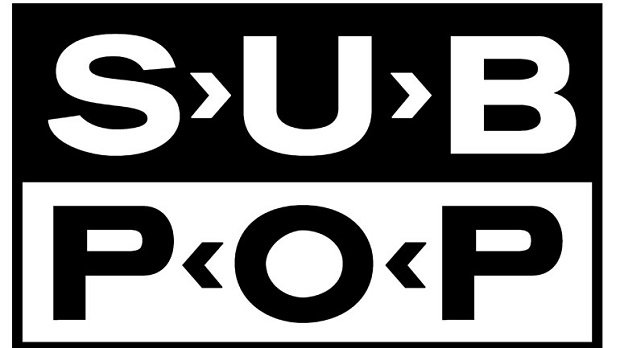
Games don't really have that sense of regionality, at least not in the way music does - there's no great burgeoning puzzle-platformer scene in the American Southwest, for instance. Development studios are found all over the world, and thanks to the internet, creators can collaborate across vast distances and share their work in ways that were unheard of just a few years ago. This can be a huge boon for independent devs, but it also means that it's harder than ever to stand out and be noticed if you don't have any backing.
Conversely, things have gotten progressively safer in the big-budget space. Publishers hedge their bets on sure-things, opting for guaranteed-to-sell sequels, rebooted critical darlings optimized for maximum nostalgic impact, or new properties that get focus tested to mitigate all risk. As fascinating as gaming can be, the industry can be surprisingly predictable, and it's hard to be really excited for new stuff when it all starts to look the same. Games like Mortal Kombat and Grand Theft Auto were originally made to piss off our parents - now, they're storied franchises with carefully calculated 'brand management'.
So how do you find the really exciting stuff, the stuff built on passion and blood and tears without having to sift through a wasteland of options? You need someone who can look at all these games, pick the real choice ones, and shove them in as many faces as possible. You need someone to say: "You wanna play the cool shit? You wanna see where the future of gaming is headed? Take this home and crank it up to 11."
This is where Devolver Devolver comes in - the closest thing to an indie record label our industry has.
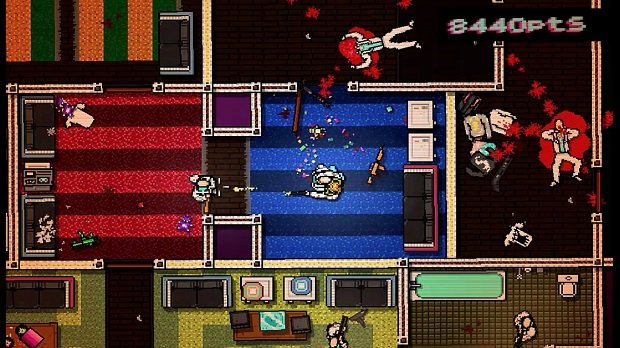
Devolver's only been around for six years, but it's already made a name for itself as the place to find games that have passion and heart, that aren't afraid to take a gamble on an interesting concept. Games that maybe aren't guaranteed market successes. Games that are edgy without having that word lose all meaning after marketing demographic meetings. Games that no one else is making. And what Sub Pop did for music, Devolver is doing the same for gaming: becoming a one-stop-shop for some of the most exciting, gut-wrenching, and downright interesting titles you can play right now.
Weekly digests, tales from the communities you love, and more
Despite its humble beginnings as the publisher for Croteam's run-backwards-and-shoot-stuff-simulator Serious Sam 3: BFE, it was Hotline Miami that became the small publisher's breakout hit - the "Nirvana" moment that put it on the map. Its neon-tinged, chunky pixel art made it look like a forgotten relic from the past; an NES cart long-since banned by government censors, stumbled upon by some lucky archivist and unleashed on an unsuspecting public decades later. Even though it seems graphically and aurally rooted in nostalgia, Hotline Miami is unlike anything we'd ever seen before - a hyper-violent feast for the senses.
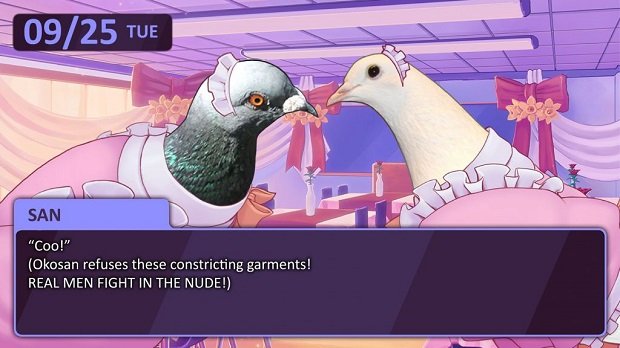
A Devolver game can be many things. It can be a blood-soaked rampage of carnage like Shadow Warrior. It can be love-letter to arcade games of yesteryear like the World War 2-themed Luftrausers. It can be a kooky/heart-breaking pigeon dating sim like Hatoful Boyfriend. It can even be a contemplative philosophical puzzler like The Talos Principle (which comes from the same developer that created the aforementioned ludicrous-gib-laden Serious Sam). Despite coming from completely different countries, genres, and art styles, each game has some unique, indefinable quality that makes them distinctly Devolver.
"It's certainly not a science but Devolver Digital is looking for games that are doing something new and are taking a risk in some form or fashion to set itself apart," says Devolver co-founder Nigel Lowrie. "This doesn't mean it has to be revolutionary but the game needs to have an element or mechanic or some edge that strikes us in some indescribable way." And that doesn't necessarily mean a game has to be perfect to be worth publishing.
Games like Always Sometimes Monsters or Gods Will Be Watching are flawed, but they wear their flaws on their sleeves as a badge of honor; a little piece of humanity to shine through some rigidly defined lines of code. Always Sometimes Monsters forces you to experience homelessness first-hand - to have to decide whether your own sense of morality is in line with actually surviving a night alone on the streets. Gods Will Be Watching puts you through a series of increasingly more harrowing trials, where one false step - or a poor roll of the dice - can send you right back to the start of the level. They're not perfect games by any means, but they're deliberately designed this way, and they're confident in the way that they aim to express their themes. They prove that games don't have to be "fun" to be enjoyable, that games can express a wide range of emotions and elements of the human condition that aren't just about amassing a high score.
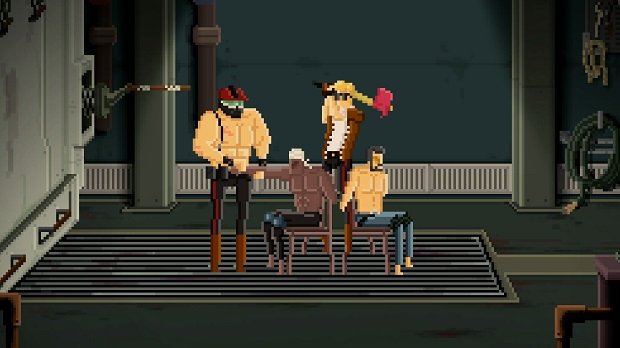
Some would decry this rawness of expression, this "punk rock" approach to game design as an excuse to make bad games, but Devolver would disagree. Much like how Sub Pop recorded its musicians in a deliberate way to cultivate a similar sound, so too does Devolver seek out games that make deliberate design choices and have the confidence to stick to them. "With our games," Nigel explains, "it's not a lo-fi art style or simple mechanic that defines the game or what it's capable of doing as a complete work. Often those elements are by choice and not necessity as some might assume. [Developer] Acid Nerve could have layered Titan Souls with a progression system, character upgrades, and NPCs but we've all played that game before and that's not the point of Titan Souls. We're looking for games striving to be unique and a developer with a commitment to see that through."
Whether these games start out as traditional pitches - complete with demos and design documents - or as the result of an experimental game jam, there's a certain humanity found in all of the games Devolver publishes, and it's the thread that connects each of these seemingly disparate titles under one banner. With the recent release of Hotline Miami 2 and Titan Souls, and upcoming games like the manic Not a Hero or comedic point-and-click Dropsy, Devolver continues to prove that there's a place for an indie game publisher in an industry where creation and self-publication is becoming easier than ever - but where standing out is just as hard as it ever was.
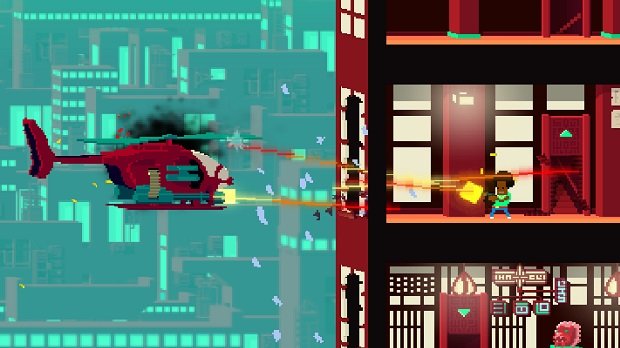
With so many different games all fighting for our attention, publishers need to define and cultivate a unique voice more than ever. It's not only to attract attention over the wealth of choices; that voice draws fans in who are looking for something different, but may not know exactly what they're looking for. Sub Pop was able to do this with music by harnessing that "Seattle Sound." If there's one publisher in gaming that can capture the spontaneity and primal human spirit of Sub Pop and transfer it to the rigidly defined world of a computer screen, it's Devolver Digital.



